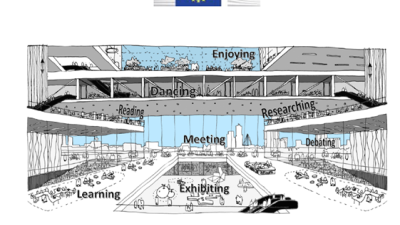The Ghost Worker’s Well-being: An Integrative Framework
Artificial intelligence relies on human labour: 80% of the work behind AI products involves human beings curating and annotating data and evaluating model outputs. There are hundreds of millions of these workers around the world. Tasks include data entry, data cleaning, categorizing and transcribing text, adding keywords, and testing and training AI-systems. The people who do these tasks are sometimes called ‘ghost workers’. Ghost workers work short-term jobs through digital labour platforms, without interacting with colleagues, without social protection, and without income security. We don’t know much about this type of work and how it affects workers’ well-being. The GHOSTWORK-project therefore aims to study the working conditions and well-being of ghost workers in the EU.
The project aims to contribute to, and advance, cross-disciplinary research on platform labour and organisational studies of algorithmic technologies. It uses several methodological approaches to study the effects of ghost work. It begins with in-depth, interview-based fieldwork on work conditions, and then uses qualitative diary studies of the short-term dynamics of ghost work to study both work conditions and well-being. Finally, a panel study will investigate the relationship between ghost work and well-being over time. The results of this project will be of interest to scholars in multiple fields, as well as policy makers and industry leaders.
Prof. dr. Claartje ter Hoeven (Erasmus University Rotterdam): “It is essential to gain more insight into the human labour behind AI and to better regulate this work. Everyone has the right to decent work, but the work of these workers also has a major impact on influential algorithms like algorithms for robotic surgery, recruitment software, and self-driving cars. It is my personal mission to ensure that society pays more attention to millions of low-paid workers who do work for AI companies.”
The GHOSTWORK-project started with a large survey across the 27 EU member states to identify where the most ghost work is being done, and to classify what of types of ghost workers there are. The results demonstrate that, across Europe, geographical distribution of ghost workers does not necessarily follow general population distribution. Furthermore, the classification of ghost workers emphasized the importance of diversity and dependency for understanding variation in workers. These findings can help institutions develop stronger policies that prioritize high-density microwork areas and support workers who rely on this work for their basic needs.
The project also studied the influence of ghost workers’ work conditions on their well-being. Findings demonstrate that extrinsic motivation promoted time spent on ghost work, which resulted in higher exhaustion levels. Yet, intrinsic motivation to enter the digital labour economy merely buffered the negative association between time spent on ghost work and workers’ engagement levels. As such, the research to date suggests that ghost work tends to drain worker’s energy. This challenges the narrative that digital labour platforms provide meaningful work for some individuals.
More info: https://www.ghostwork.org/
Horizon 2020 - ERC Consolidator Grant
Samenwerking tussen universiteiten
Meer verhalen van Erasmus Universiteit Rotterdam
-
CultuurCampus: A sustainable hub of arts, research, learning and community as the catalyst of territorial transformation
Erasmus Universiteit Rotterdam

-
COALESCE: Coordinated Opportunities for Advanced Leadership and Engagement in Science Communication in Europe
Erasmus Universiteit Rotterdam

-
SEISMEC: Supporting European Industry Success Maximization through Empowerment Centred development
Erasmus Universiteit Rotterdam


